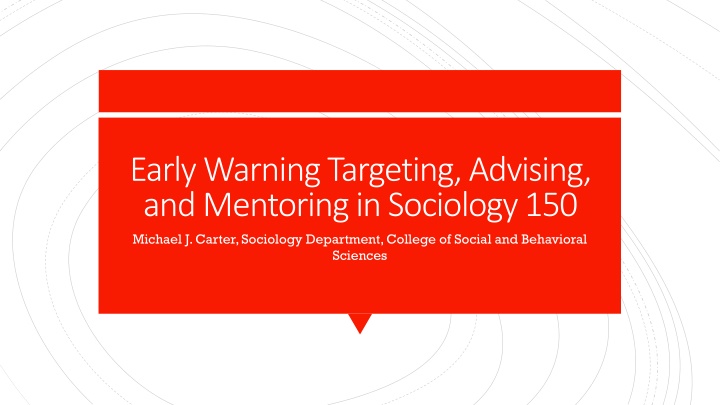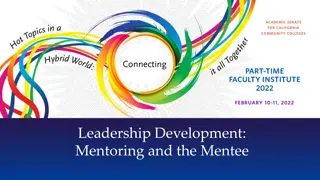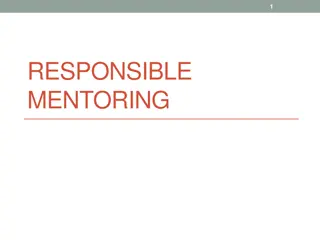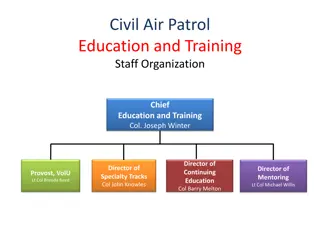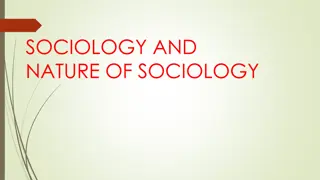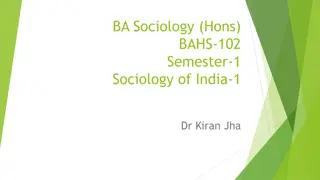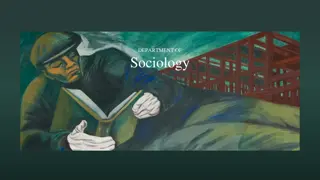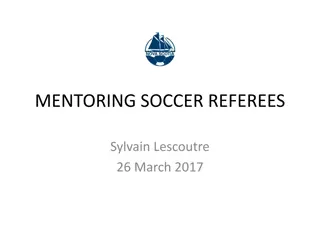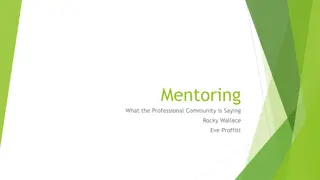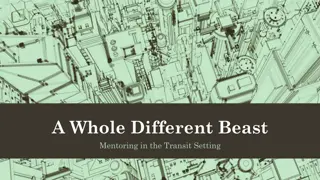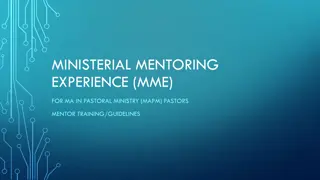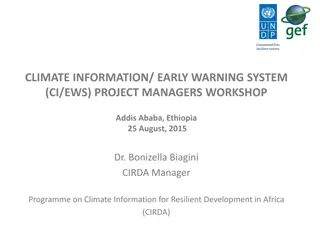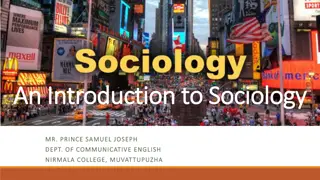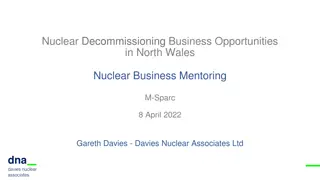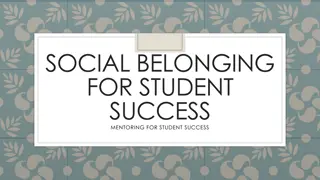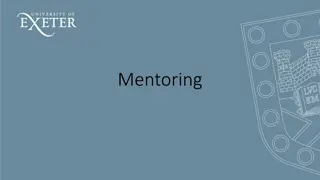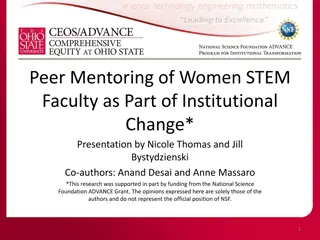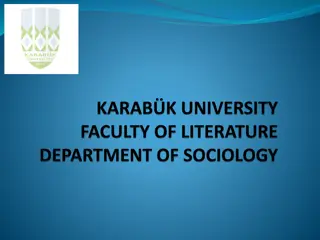Early Warning Targeting and Mentoring Project in Sociology 150
Past research indicates underserved students often struggle with feelings of belonging and fixed ability, leading to academic challenges. To address these issues, an early warning targeting, advising, and mentoring project was implemented for Sociology 150 students. The project included team projects, extra instruction, and weekly mentoring/tutoring from ISAs. Data collected showed improvements in student performance indicators and attitudes towards belonging and academic ability.
Download Presentation

Please find below an Image/Link to download the presentation.
The content on the website is provided AS IS for your information and personal use only. It may not be sold, licensed, or shared on other websites without obtaining consent from the author.If you encounter any issues during the download, it is possible that the publisher has removed the file from their server.
You are allowed to download the files provided on this website for personal or commercial use, subject to the condition that they are used lawfully. All files are the property of their respective owners.
The content on the website is provided AS IS for your information and personal use only. It may not be sold, licensed, or shared on other websites without obtaining consent from the author.
E N D
Presentation Transcript
Early Warning Targeting, Advising, and Mentoring in Sociology 150 Michael J. Carter, Sociology Department, College of Social and Behavioral Sciences
Past research has shown that underserved students often have doubts that they belong at the university; they also often believe that their ability is a fixed quality. Students concerns of belonging and ability often lead to harmful self-fulfilling prophecies resulting in failing courses and dropping out of college. To address issues of belonging and ability, I administered an early warning targeting, advising, and mentoring project aimed at assisting students in my spring 2017 Sociology 150 class, the course with the highest D/F/U impact rate in the Sociology Department. Students in the class experienced the following: Placement in a three-student team/group project (aimed at creating a sense of community and belonging among students) Extra instruction (for individual students who were struggling in the course. Students were contacted personally by the professor and ISAs and invited to come to office hours for extra help) Weekly mentoring/tutoring from instructional student assistants (the ISAs kept in close contact with the three-student teams and intervened if students fell behind, and worked to instill a notion of resiliency in students who struggled) Guiding Questions
The following date were collected: Student performance indicators (attendance record, exam and assignment scores) Correspondence data (correspondence type, frequency, and duration among students, professor, and ISAs) Student exit survey (measured a variety of attitudinal and behavioral variables, including students opinions of the strategies used in the course, students perceived sense of belonging in the course and the university, students perceived sense of how their academic ability has changed over the semester, students perceived sense of the cohesiveness of their three-person team, and information such as how many hours per week they spent studying for the course, and whether their study habits changed over the course of the semester) Overview of Data
Table 1. Student Performance Indicators: Comparisons Sociology 150 (S2015, S2016, F2016) Sociology 150 (S2017) % Change Exam 1 average: 62.00% Exam 1 average: 64.12% +2.12% Exam 2 average: 58.08% Exam 2 average: 60.36% +2.28% Exam 3 average: 61.18% Exam 3 average: 65.22% +4.04% Students exam scores showed improvement compared to previous semester averages, though the improvement was moderate. Findings Exit survey data revealed that the professor instilled a sense of belonging in students (though roughly 20% of the students were neutral or more negative about their sense of belonging at CSUN, and many students were neutral regarding the ISAs instilling a sense of belonging at CSUN). The results showed that students strongly believe that their academic ability can improve over time. Students experience in the three-person teams was divided, with some finding the experience positive and others finding it negative.
Overall the results show some promise for intervention programs that aim to increase a sense of belonging and ability in students, though more seems needed to impact the D/F/U rate in Sociology 150. Concluding thoughts Based on the results of this and related projects, the Sociology Department has developed a tutoring program aimed at improving students performance in Sociology 150.
